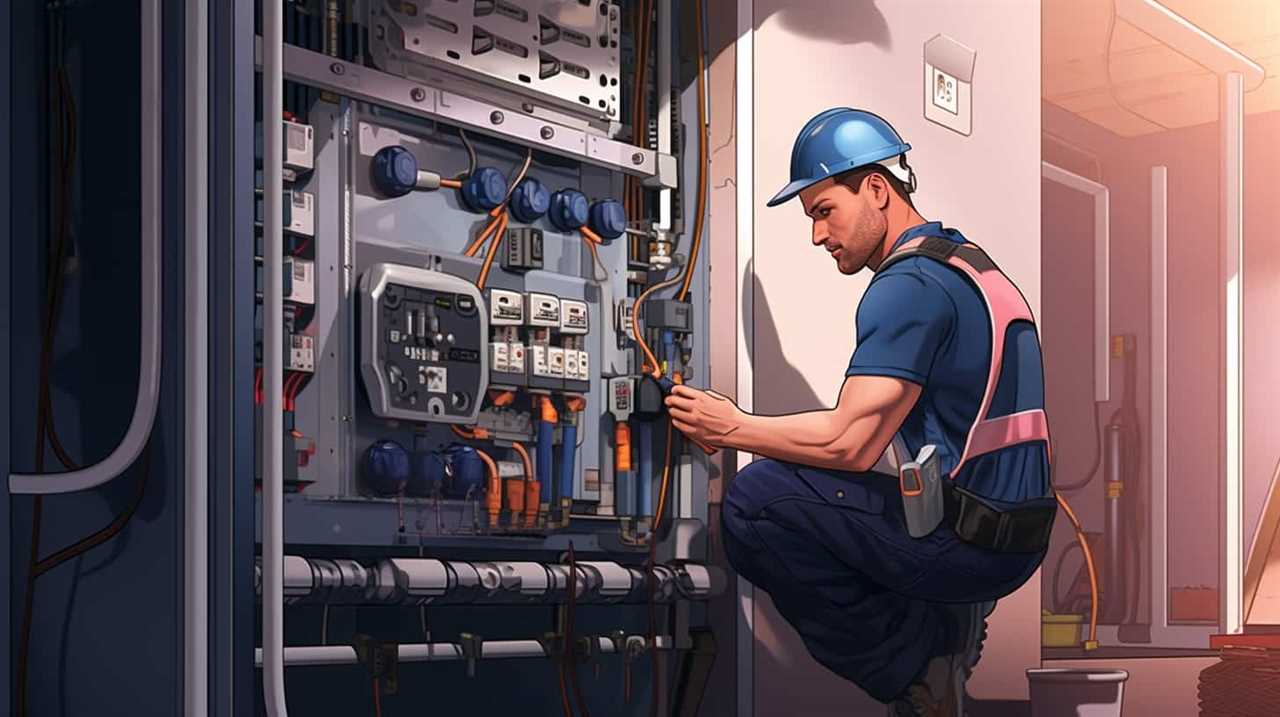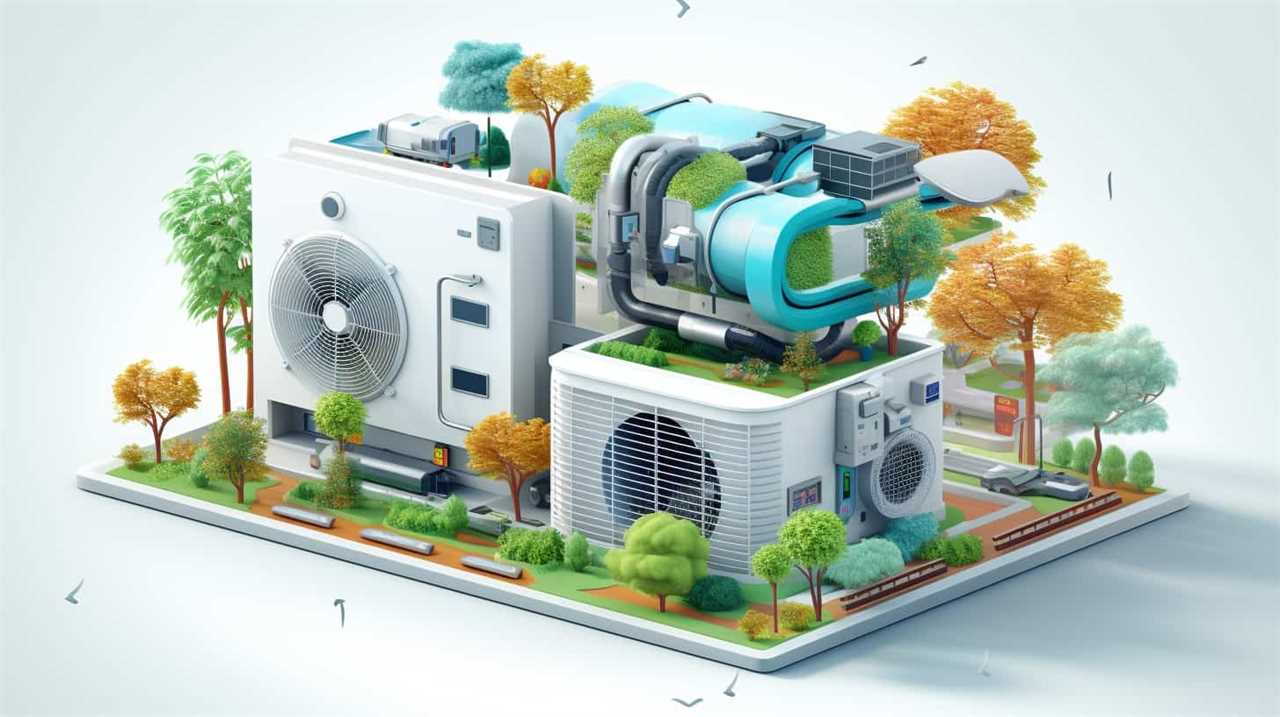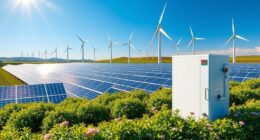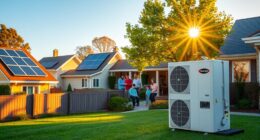Did you realize that nearly half of the energy used in an average home comes from heating and cooling?
At our company, we understand the importance of finding the most efficient and cost-effective solution for your HVAC needs.
In this article, we will compare the efficiency, cost, energy consumption, environmental impact, and overall performance of heat pumps and traditional air conditioners.
By examining these factors, we aim to help you make an informed decision and ensure your comfort while serving the planet.
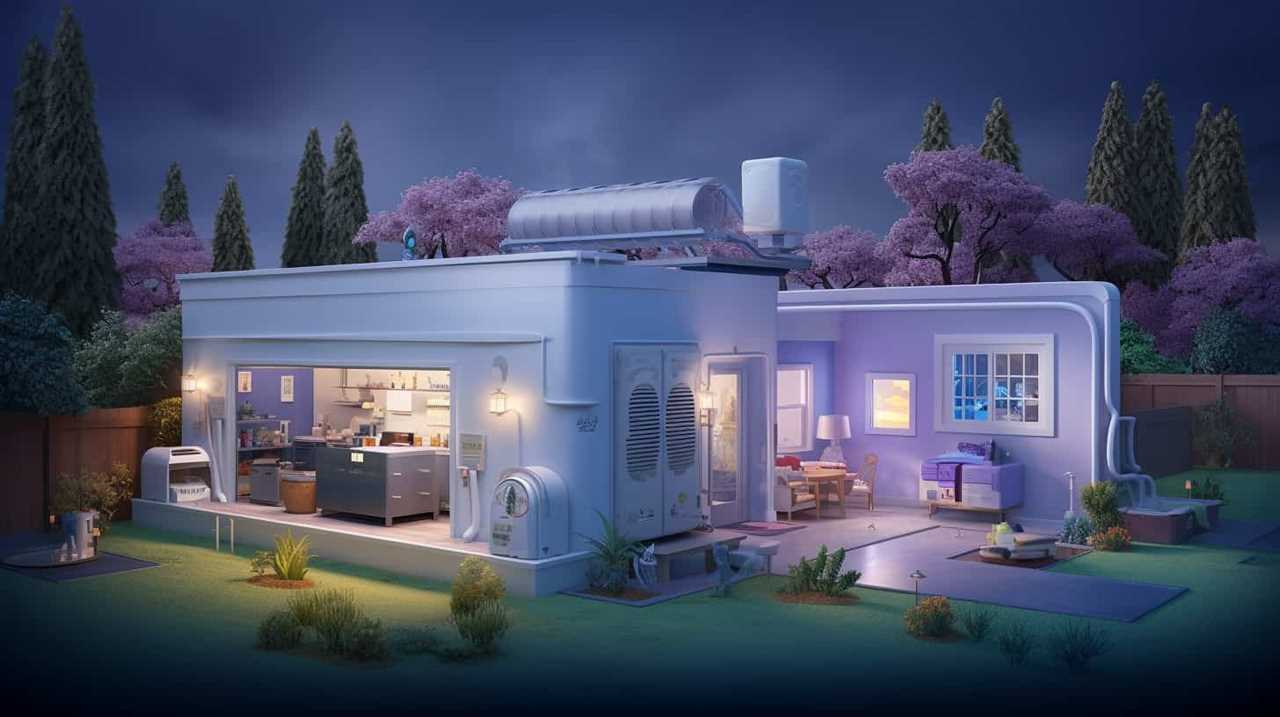
Key Takeaways
- Heat pumps offer higher energy efficiency and lower energy consumption compared to traditional AC systems.
- Heat pumps have a lower environmental impact and produce fewer greenhouse gas emissions.
- Heat pumps provide both heating and cooling, while traditional AC units only provide cooling and require a separate heating system.
- Heat pumps offer long-term energy savings and lower utility bills, despite having a higher upfront cost.
Efficiency Comparison
When it comes to efficiency, which option is better for us, a heat pump or a traditional AC? Let’s dive into the details.
Energy efficiency is a crucial factor to consider when choosing between a heat pump and a traditional AC. Heat pumps are known for their high energy efficiency as they transfer heat rather than generate it. This means that they consume less energy to produce the same amount of cooling or heating as a traditional AC.
As a result, heat pumps can significantly reduce energy consumption and lower utility bills. Additionally, heat pumps have a lower environmental impact compared to traditional ACs. With their ability to extract heat from the air or ground, heat pumps utilize renewable energy sources and produce fewer greenhouse gas emissions, promoting a greener and more sustainable environment.
Cost Analysis
When considering the cost analysis between a heat pump and a traditional AC, it’s important to evaluate three key points.
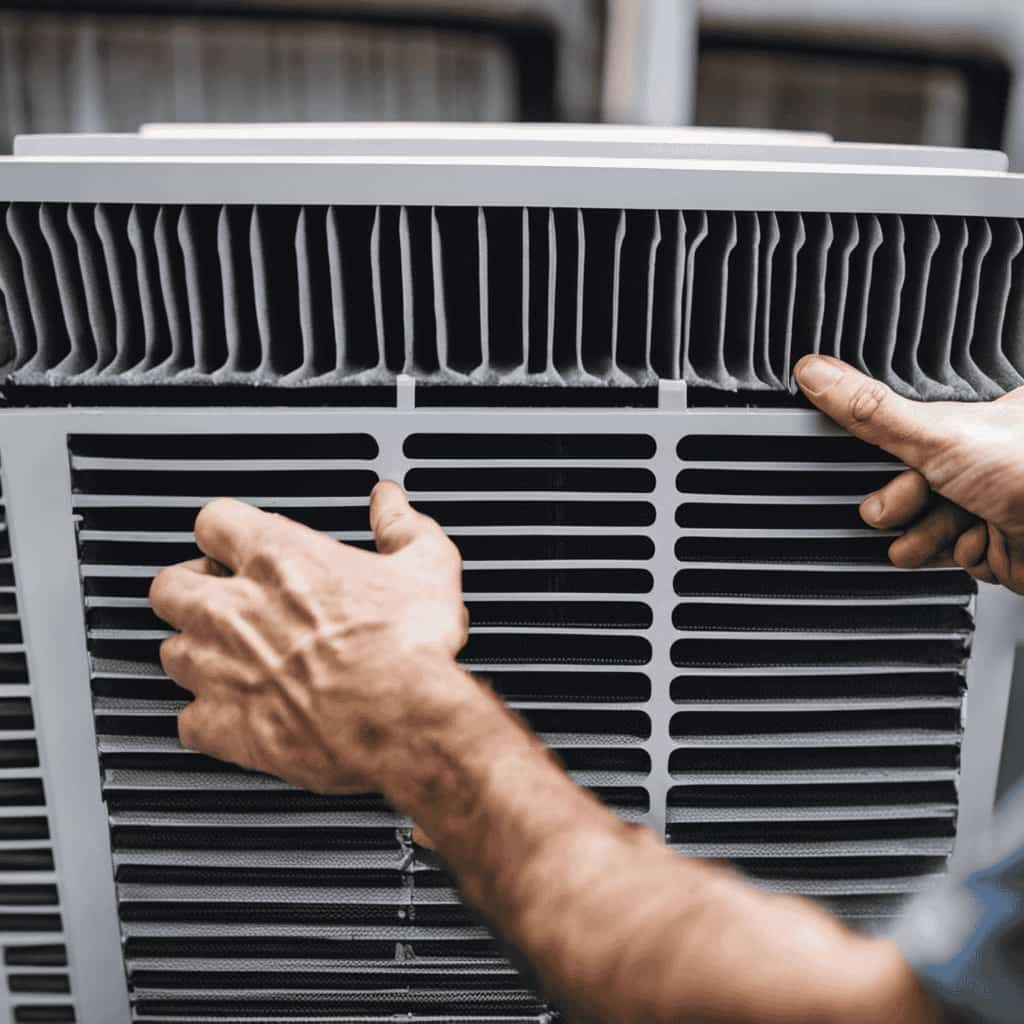
First, the initial installation expenses differ between the two systems, with heat pumps typically having a higher upfront cost due to their advanced technology.
Second, long-term energy savings should be taken into account, as heat pumps are generally more energy-efficient and can result in lower utility bills over time.
Lastly, maintenance and repair costs should be considered, as heat pumps may require more frequent servicing and specialized repairs.
Initial Installation Expenses
Let’s analyze the cost of installing a heat pump versus a traditional AC system.
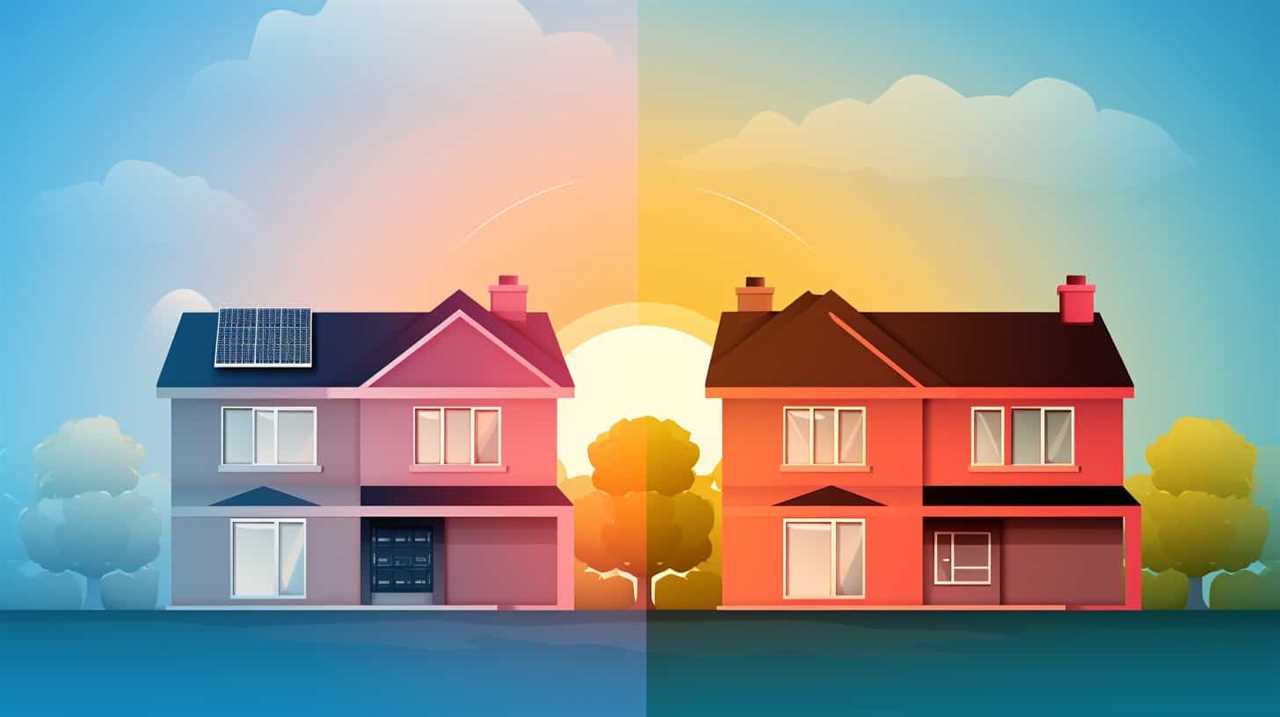
When it comes to the initial investment, heat pumps tend to be more expensive than traditional AC systems. This is because heat pumps are more complex and require additional components such as a refrigerant line and indoor air handling unit.
However, despite the higher upfront cost, heat pumps offer a shorter payback period due to their energy efficiency. The payback period refers to the time it takes for the energy savings from using a heat pump to offset the initial investment.
With their ability to provide both heating and cooling, heat pumps can significantly reduce energy consumption and utility bills in the long run.
Transitioning into the next section, let’s explore the long-term energy savings that heat pumps offer compared to traditional AC systems.
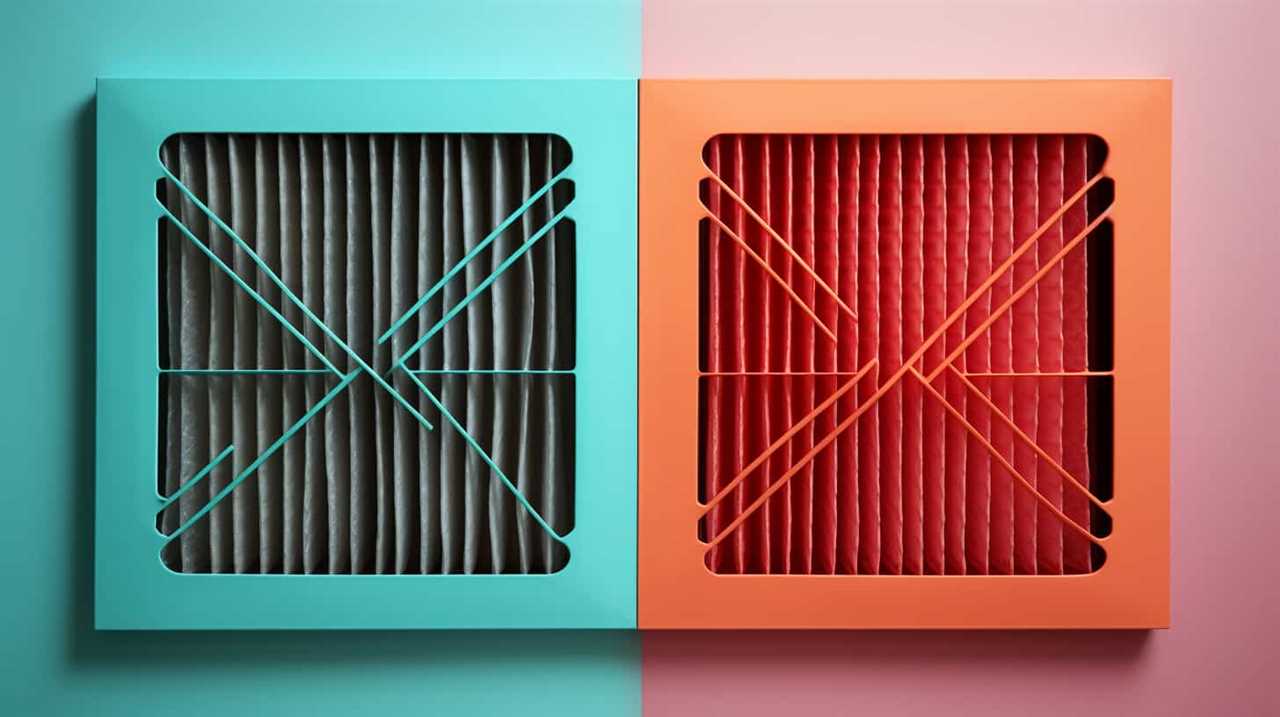
Long-Term Energy Savings
We frequently find that heat pumps offer long-term energy savings compared to traditional AC systems. Heat pumps are known for their energy efficient options, which can result in significant cost savings over time. Unlike traditional AC systems that rely on electricity to cool the air, heat pumps use a refrigeration cycle to transfer heat from one place to another, making them more efficient. By extracting heat from the air or ground and using it to warm or cool your home, heat pumps can reduce energy consumption and lower utility bills.
Not only do heat pumps provide long-term cost savings, but they also offer environmental benefits by reducing greenhouse gas emissions. Transitioning to a heat pump can be a wise investment for homeowners looking to save money and reduce their carbon footprint.
Moving on to maintenance and repair costs…
Maintenance and Repair Costs
As for maintenance and repair costs, we need to consider the advantages and disadvantages of heat pumps and traditional AC systems.

Heat pumps generally require less maintenance compared to traditional AC systems. They’ve fewer moving parts, which means there are fewer components that can break or malfunction. Heat pumps typically require annual maintenance, including cleaning and inspection of the system.
On the other hand, traditional AC systems may require more frequent maintenance, usually every six months, to ensure optimal performance.
When it comes to repair duration, heat pumps tend to have shorter repair times compared to traditional AC systems. This is because heat pumps are designed to be more efficient and have built-in diagnostic features that help technicians identify and fix issues more quickly.
Energy Consumption
When comparing heat pumps and traditional AC systems, one important factor to consider is energy consumption.
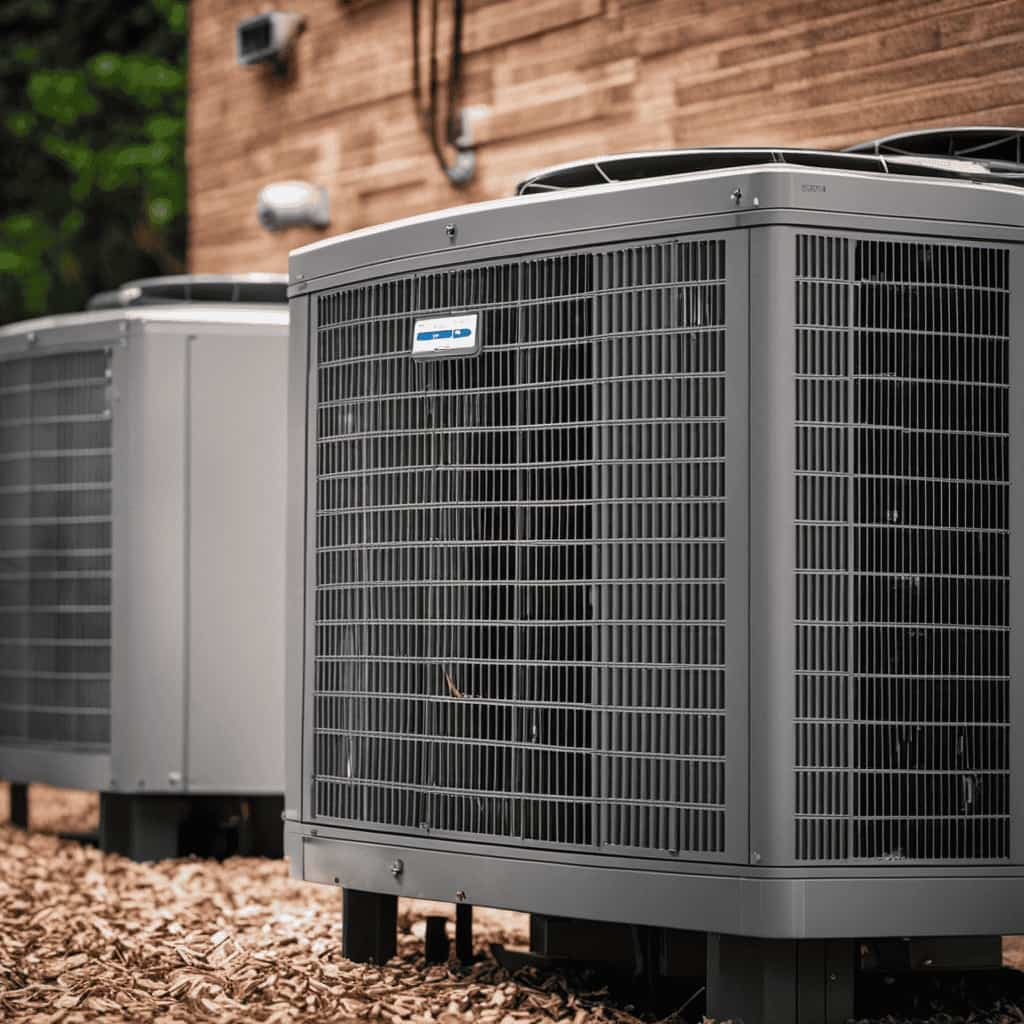
Heat pumps are known for their efficiency, as they can transfer heat instead of generating it, resulting in lower energy usage.
On the other hand, traditional AC systems consume more energy since they rely on the process of cooling air through refrigeration.
Understanding the energy consumption of each system is crucial in determining which option is more cost-effective and environmentally friendly.
Heat Pump Efficiency
Although heat pumps and traditional AC units both provide cooling, their efficiency in terms of energy consumption differs significantly. Heat pumps are known for their high energy efficiency, as they can provide both heating and cooling. This is achieved by transferring heat from a colder area to a warmer one, using a small amount of electricity to power the process. On the other hand, traditional AC units only provide cooling and require a separate heating system. To illustrate the difference in efficiency, consider the following table:
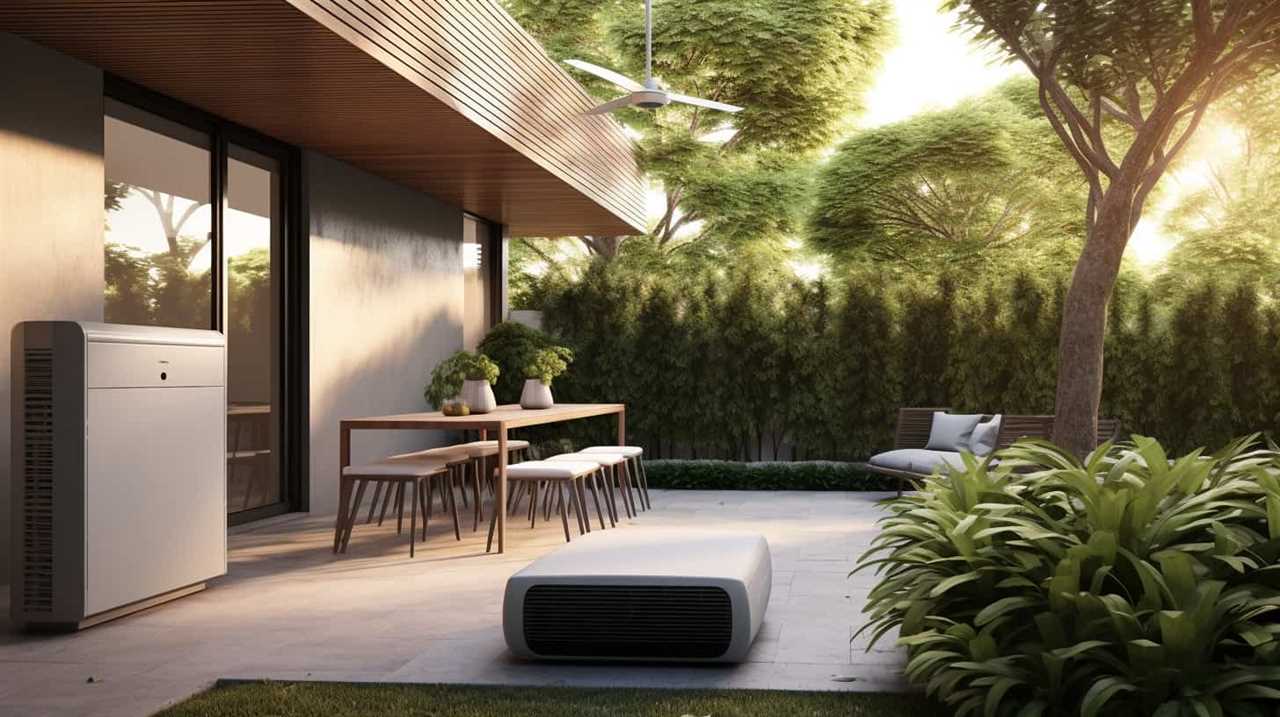
| Heat Pump | Traditional AC | |
|---|---|---|
| Heating Capacity | High | N/A |
| Energy Efficiency | High | Moderate to Low |
| Cooling Efficiency | High | High |
As can be seen, heat pumps have a higher heating capacity and energy efficiency compared to traditional AC units. This makes them a more sustainable and cost-effective choice. Now, let’s delve into the topic of AC energy usage.
AC Energy Usage?
We should examine the energy consumption of AC units compared to heat pumps. When it comes to AC energy usage, there are several key factors to consider:
-
Energy Efficiency: AC units tend to have lower energy efficiency compared to heat pumps. This means that they consume more energy to provide the same cooling effect.
-
Cooling Load: AC units are designed to cool individual rooms or spaces, which means they may be less efficient when it comes to cooling larger areas or whole buildings.
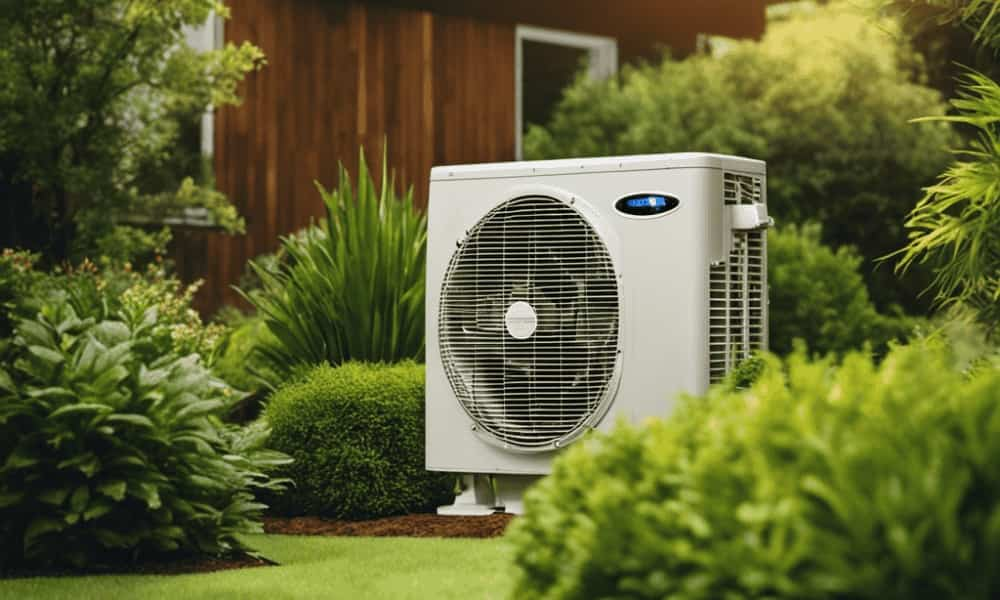
-
Usage Patterns: The energy consumption of AC units can vary depending on how often they’re used and at what temperature settings.
-
Maintenance: Regular maintenance of AC units is crucial to ensure optimal energy efficiency and performance.
-
Technological Advances: Newer AC units are being developed with improved energy efficiency features, such as variable-speed compressors and smart thermostats.
Understanding the energy consumption of AC units is important not only for cost savings but also for reducing the environmental impact of cooling systems.

Environmental Impact
Using a heat pump instead of a traditional AC system can significantly reduce our environmental impact. Heat pumps are known for their high energy efficiency and low carbon footprint.
Unlike traditional ACs that rely on electricity to cool the air, heat pumps transfer heat from one place to another using a refrigerant. This process requires less energy since it doesn’t involve generating cool air from scratch.
As a result, heat pumps can provide the same level of cooling with much lower energy consumption. This not only reduces our dependence on fossil fuels but also lowers our carbon emissions, contributing to a greener and more sustainable environment.
Heating Capability
Our heat pump provides efficient heating capability during the colder months. Here are five key features that make it a reliable choice for temperature control:

-
High heating capacity: Our heat pump is designed to deliver powerful heating performance, ensuring that your home stays warm and comfortable even in extreme cold weather.
-
Precise temperature control: With advanced thermostat technology, our heat pump offers precise temperature control, allowing you to set your preferred temperature and maintain it consistently.
-
Energy efficiency: Our heat pump operates with high energy efficiency, helping you save on heating costs while reducing your carbon footprint.
-
Dual functionality: Our heat pump not only provides heating during winter but also functions as an air conditioner in summer, offering year-round comfort.

-
Quiet operation: Our heat pump is engineered with noise-reducing features, ensuring quiet operation and minimal disturbance to your indoor environment.
With these features, our heat pump is an excellent choice for efficient heating and temperature control in your home.
Cooling Performance
During the summer months, a heat pump offers efficient cooling performance and keeps our home comfortable. Heat pumps use a refrigeration cycle to transfer heat from the inside of our home to the outside, creating a cooler indoor environment.
Compared to traditional air conditioning (AC) units, heat pumps provide energy efficiency and have a lower environmental impact. Heat pumps use electricity to move heat rather than generating it, resulting in lower energy consumption. This not only reduces our utility bills but also decreases the demand for fossil fuels, reducing greenhouse gas emissions.
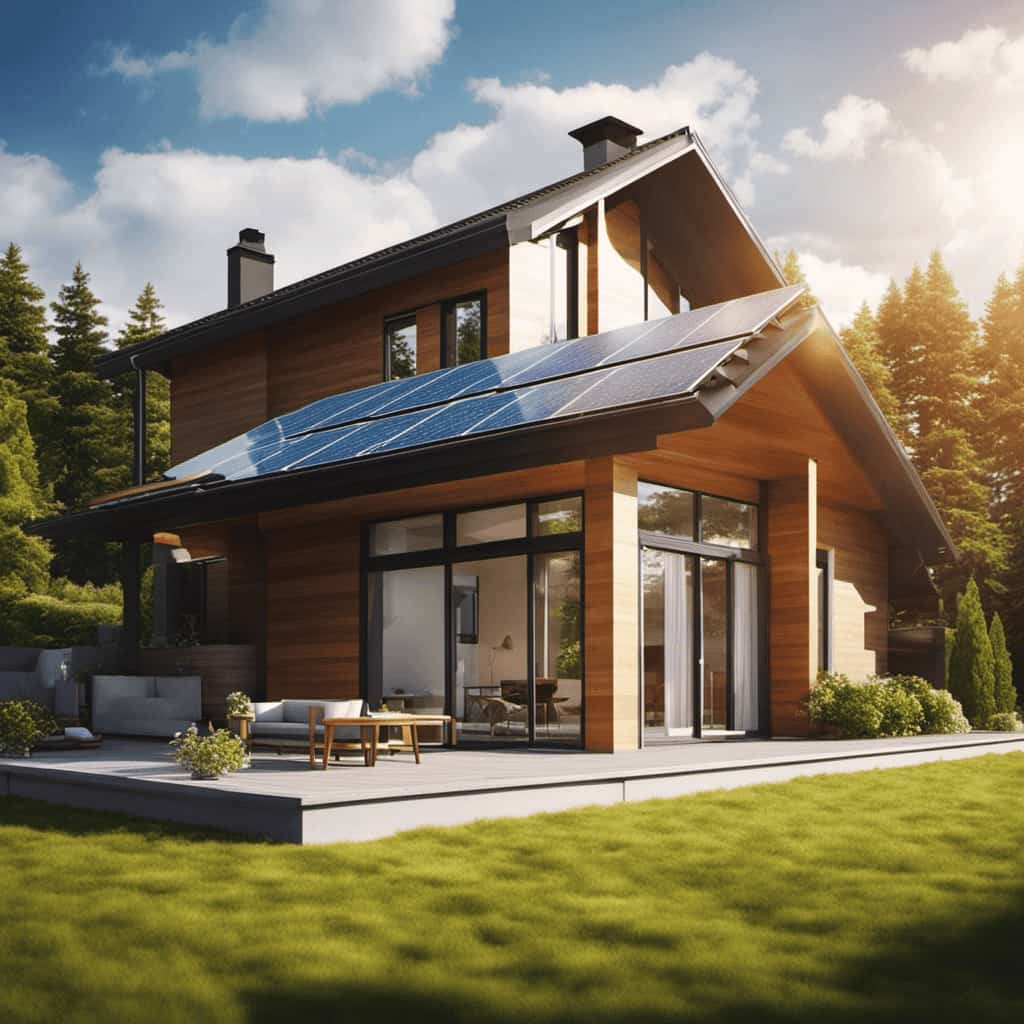
Additionally, heat pumps don’t rely on the combustion of fossil fuels, which means they don’t release harmful pollutants into the air. By choosing a heat pump for cooling, we can enjoy a comfortable home while minimizing our environmental footprint.
Maintenance Requirements
How often do we need to perform maintenance on a heat pump compared to a traditional AC unit?
When it comes to maintenance requirements, heat pumps and traditional AC units have some similarities, but also a few key differences. Here are the main points to consider:
-
Regular filter cleaning or replacement is essential for both heat pumps and traditional AC units to ensure proper airflow and energy efficiency.
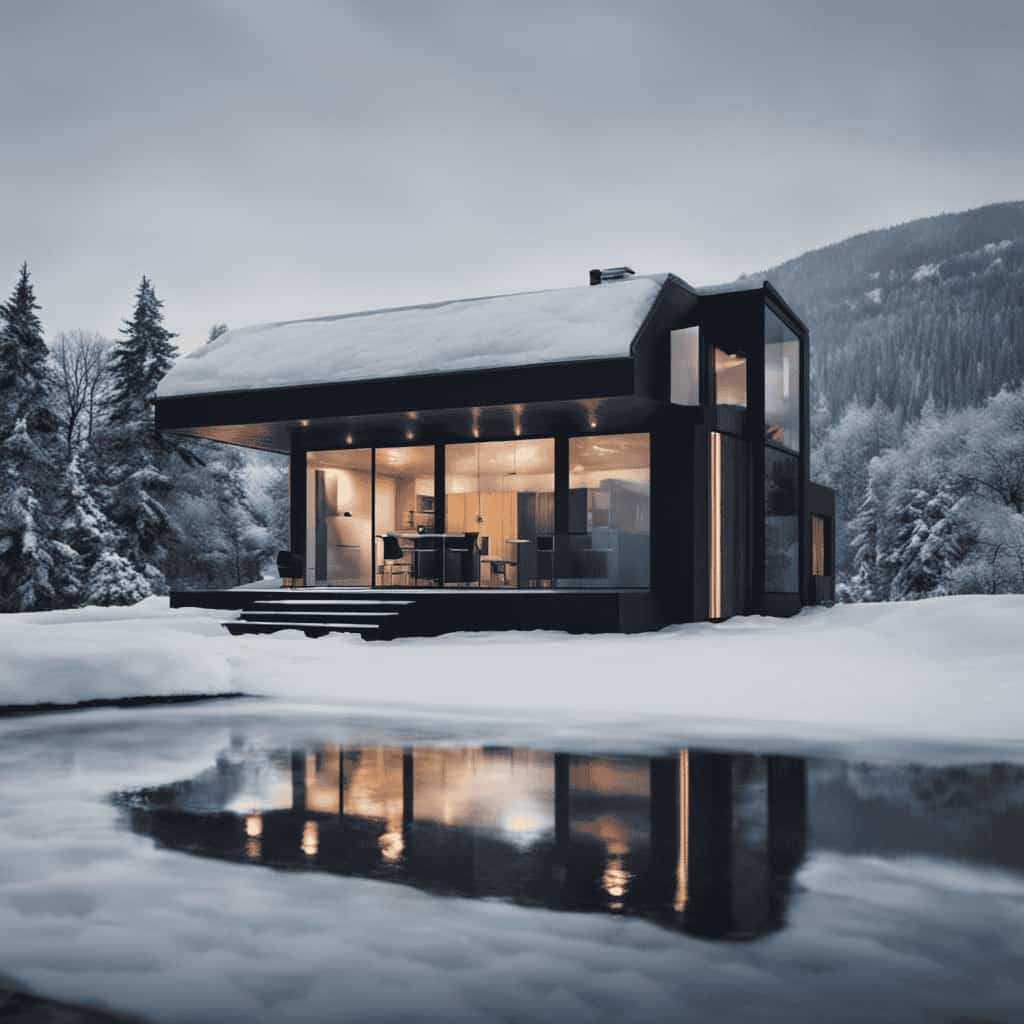
-
Heat pumps require additional maintenance tasks, such as checking and cleaning the outdoor coil, inspecting the refrigerant lines for leaks, and ensuring the defrost cycle is functioning correctly.
-
Traditional AC units typically have a shorter lifespan compared to heat pumps, so they may require more frequent repairs and maintenance.
-
Both systems benefit from annual professional inspections to identify any potential issues and optimize performance.
-
Following manufacturer-recommended maintenance schedules is crucial for both systems to maximize energy efficiency and extend their lifespan.
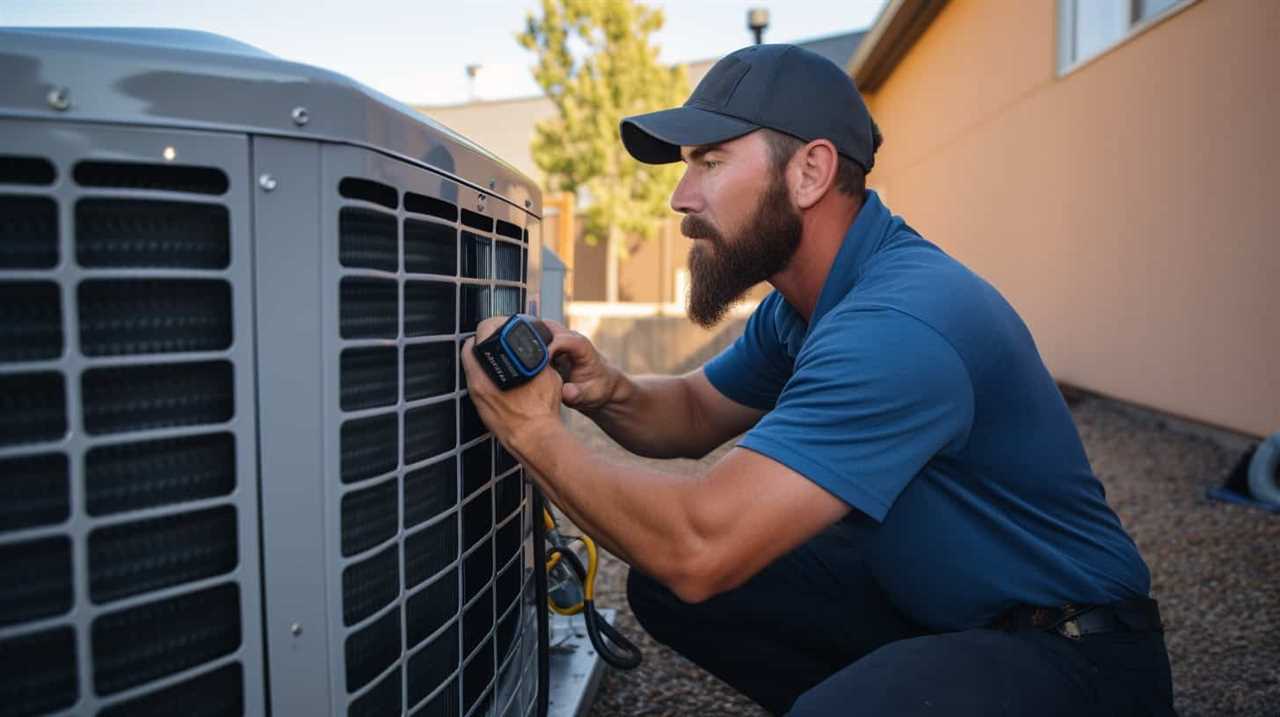
Long-Term Savings
When considering long-term savings, we can save up to 50% on energy costs by choosing a heat pump over a traditional AC unit. Heat pumps are known for their energy efficiency, as they transfer heat rather than generate it. This means that they require less energy to keep your home cool in the summer and warm in the winter.
By utilizing the outside air, heat pumps can achieve remarkable efficiency levels, resulting in significant savings over time. Additionally, the payback period for a heat pump is usually shorter compared to a traditional AC unit. This means that you can recoup your initial investment in a shorter amount of time, allowing you to enjoy the long-term savings sooner.
Frequently Asked Questions
How Is the Installation Process Different for a Heat Pump Compared to a Traditional Ac?
The installation process for a heat pump differs from a traditional AC. With a heat pump, both heating and cooling components need to be installed, while a traditional AC only requires a cooling system installation.
Can a Heat Pump Be Used in Colder Climates Where Temperatures Regularly Drop Below Freezing?
Yes, a heat pump can be used in colder climates where temperatures regularly drop below freezing. Heat pump efficiency allows for energy savings by transferring heat from outside to inside the home, even in freezing temperatures.

Are There Any Limitations to Using a Heat Pump, Such as Noise Levels or Space Requirements?
Noise levels and space requirements are important considerations when using a heat pump. We must ensure that the noise emitted by the unit is acceptable and that we have enough space to install it properly.
How Long Does the Average Heat Pump or Traditional AC Unit Last Before Needing to Be ReplACed?
On average, both heat pumps and traditional AC units have a lifespan of around 10 to 15 years before needing replacement. However, it’s important to note that proper maintenance is crucial to ensure longevity and optimal performance.
Are There Any Government Rebates or Incentives Available for Installing a Heat Pump or Traditional Ac?
There are government rebates and incentives available for installing a heat pump or traditional AC. These incentives are aimed at promoting energy efficiency and can help offset the cost of installation.
Conclusion
In conclusion, when it comes to choosing between a heat pump and a traditional AC, it ultimately depends on your specific needs and preferences.

While heat pumps offer higher efficiency and lower energy consumption, they may not be as effective in extreme temperatures.
Traditional AC units, on the other hand, provide reliable cooling performance but consume more energy.
Consider your budget, environmental impact, and long-term savings before making a decision.
Like a symphony conductor, choose the system that harmonizes best with your unique requirements.


